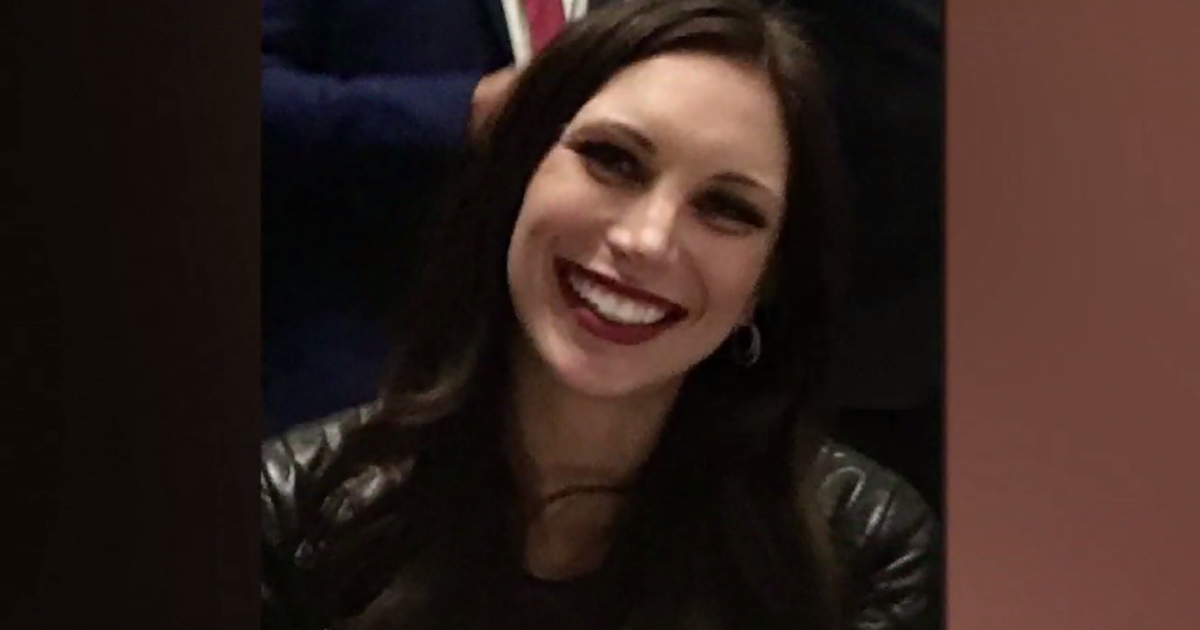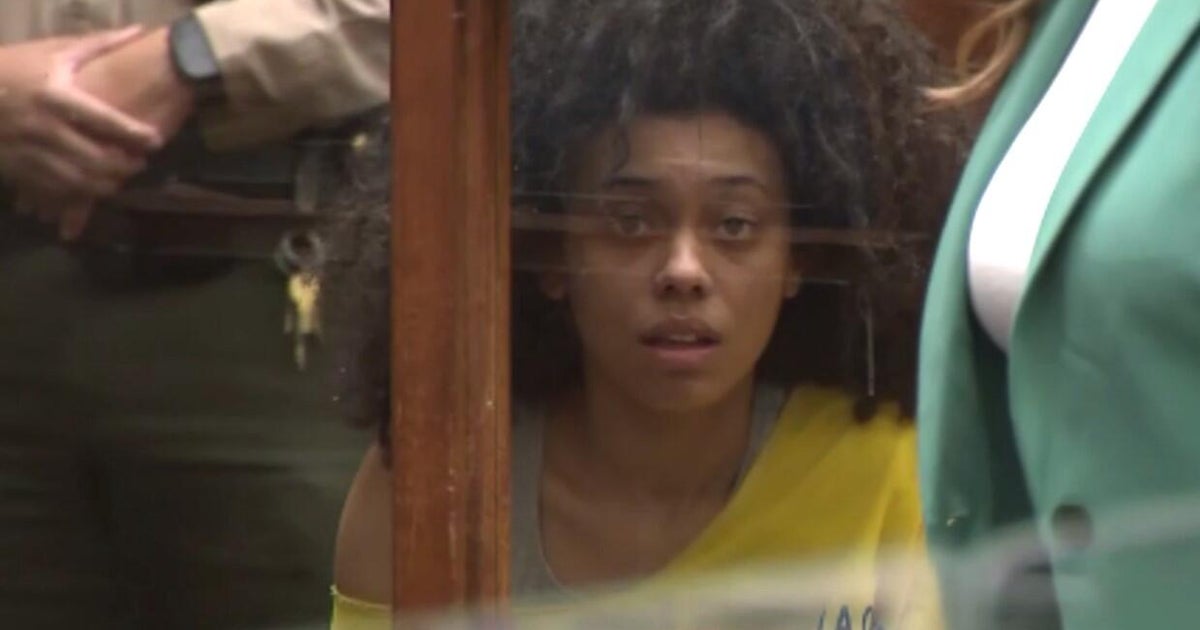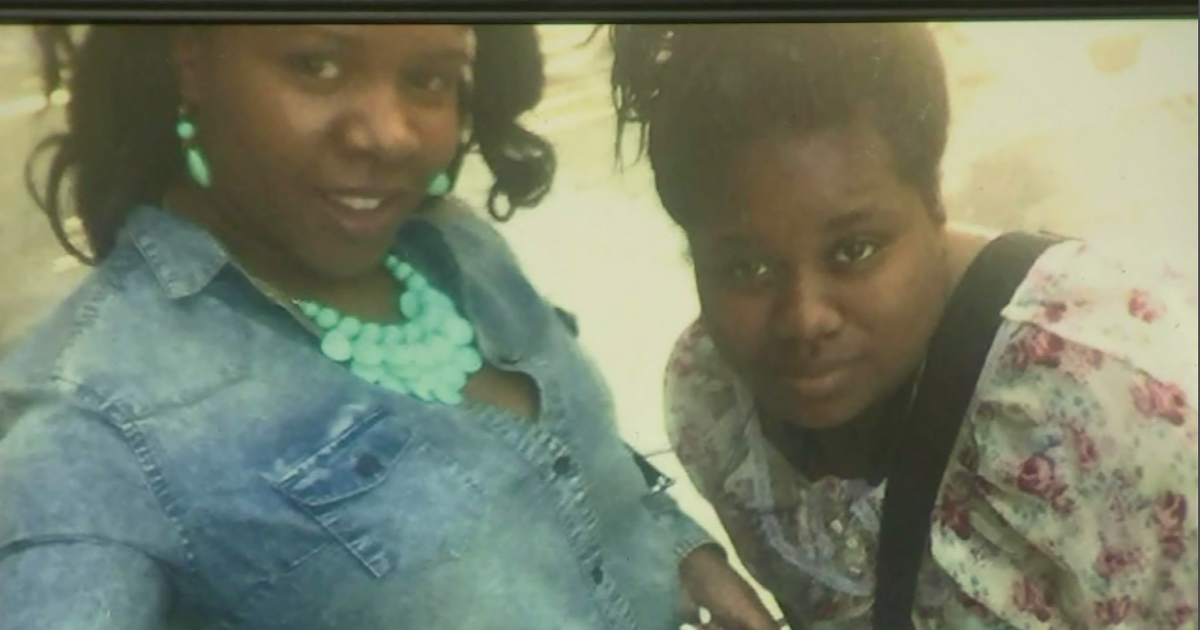Justice delayed for two Chicago moms whose sons were murdered in 2017, 2018
CHICAGO (CBS) – Two moms, two sons, two murders, two arrests but not one of the cases has gone to trial. Not yet. It's been almost four years for one mother, and almost six years for the other, since the suspects were arrested and charged. Why is justice delayed?
THE MURDER OF RYAN HATCHETT
"My bed was directly under the stairs. I heard the footsteps go downstairs to open the door, and I heard two sets of footsteps go back up the stairs," said Sharon Hatchett. "A few seconds later, I heard gunshots."
Hatchett described the moment she heard someone shoot her 29-year-old son, Ryan Hatchett, who was in the upstairs apartment sleeping.
She remembered running to the stairwell and recognizing the shooter.
"Phillip was coming down the stairs trying to get out of the building," Hatchett said. "And I asked him, 'What are you doing here? What did you just do?'"
She knew the man, Phillip McAbee, because he was the brother of her son's girlfriend.
"When he pulled the gun, I knew," she said. "He tried to shoot the gun. I don't know what happened, it didn't shoot me. It didn't launch any bullets."
Hatchett said he ran away and then she saw her son, awake now and downstairs. He appeared to be in pain.
"He was shot through the stomach. I'm praying. I'm calling for them to call the ambulance," she said.
Later at the hospital doctors operated on Ryan three times.
"God gave me 36 hours with him," Sharon Hatchett said, "I told him I loved him and that he was going to be okay. It was going to be fine. I still believe that, whether it's this side of heaven or the other side. He'll be all right."
That dramatic scene at home and in the hospital happened nearly five years ago, in July 2018. The suspect was identified by witnesses immediately but he was not found, arrested and charged until 2019.
"You would think it was an open and shut case, but the judicial system, they're taking their time with it," said Hatchett.
Nearly five years after Ryan's murder and four years after McAbee's arrest, the case does not appear to be close to trial.
There have been several delays over the years. McAbee's public defender withdrew early on and McAbee began defending himself. Then the COVID-19 pandemic shut down Cook County courts for six months in 2020.
Sharon Hatchett thought the murder trial would have been held and concluded by now.
"Once he got caught, I just knew that by now we'll have something going on," she said. "But right now, they're still in discovery."
THE MURDER OF KESHAWN SLAUGHTER
Tracey Brumfield has been waiting even longer for justice.
Someone shot her son, Keshawn Slaughter, in the back of the head two weeks before his 27th birthday.
"Instead of me buying outfits for his birthday, I bought funeral clothes," Brumfield said.
Slaughter's 11-year-old stepson was also shot, but the boy survived.
Since the shooting, Brumfield has held on to warm memories of her son,.
"He was a very caring person," she said. "He was respectful. He loved his family. I called him my sunshine."
Slaughter was shot after leaving a convenience store in April 2017. He made a phone call before the shooting and was able to describe a car that was following him and his stepson.
An ambulance took Slaughter to the hospital while his mother got the call to hurry to the hospital.
"It seemed like it took forever, forever for me to get there," Brumfield said.
By the time she arrived at his bedside, Slaughter was on life support.
"Give me a sign or squeeze my hand, blink an eye. Do something," Brumfield said. "But I just know he was gone. He was gone."
Brumfield cherishes the last words she shared with him,
"I told him how much I loved him," she said. "I told him that I will always love you."
Unlike Sharon Hatchett, Brumfield did not know who murdered her son. So she pushed police to investigate by regularly showing up at the police station.
"I was there every day after work. I literally camped out," she said. "They all knew me. They'd be like, 'Hey Miss Brumfield.'"
Later, she managed to reach someone in then Police Superintendent Eddie Johnson's office to ask about progress in the investigation. Her aggressiveness paid off.
"Everything started. They started getting this, getting that," Brumfield said. "My next call was yes, we have a suspect, could you come to the station?"
Police arrested Leander Townsell in June 2017, two months after the deadly shooting. Illinois State Police tested a gun Townsell had been arrested with earlier and discovered it to be the murder weapon.
"They said that they had someone," she said. "That person still had the firearm and everything."
Townsell was also picked out of a police lineup. Townsell was charged with murder and attempted murder. His case first went to court in July 2017.
"It's 2023," Brumfield said. "Where's the trial? What else do y'all need? I'm not understanding that part."
Nearly six years and more than 50 trips to court are taking a toll on Brumfield.
"It's stressful," she said. "It's very stressful because we want it over with."
The COVID-19 pandemic delayed Townsell's case. Then the case had to be reassigned to another judge after the first one retired.
Brumfield finally got the call in fall 2022 that a trial date was going to be set.
"But still no trial," she said. "It was canceled [and postponed] to this year in Spring."
THE COOK COUNTY COURT SYSTEM
"In general, Chicago has always had problems with cases, particularly murder cases pending for a very, very long time and a problem that's more severe than it is in other cities," said Sarah Staudt.
Staudt is the Director of Policy for the Chicago Appleseed Center for Fair Courts. It's a nonprofit focusing on systemic legal issues, especially where race and poverty play a role.
She gave one example.
"Chicago, by sort of custom, has people come back to court every month or every six weeks, even if there's really not much progress on the case," Staudt said. "And that's a problem because it also takes up lawyers' time."
The CBS 2 Investigators analysis of Illinois Courts data on filed, disposed of and pending cases by year, reveals Hatchett's and Brumfield's cases are not the exceptions.
Pending felony cases like their sons' murder cases, have hovered around the 23,000 to 24,000 mark for years.
But when the pandemic hit and courts were closed that number rose to more than 29,000 at the end of 2020. The next year it ticked down slightly but ended 2021 with more than 27,000 cases pending. That's the highest number in nearly a decade.
Those increased unresolved felony cases are a small part of the reason the backlog of pending criminal cases is skyrocketing. At the end of both 2020 and 2021 the number of pending criminal cases sat near or above 250,000. The majority of those open cases are criminal misdemeanors.
"For a long time the majority of cases that moved through the Cook County system were drug cases. Drug cases resolved relatively quickly," Staudt said. "Now the plurality of cases moving through the system are gun possession cases which are more serious cases and because of that, things are taking longer."
Weapons charges can be filed as felonies or criminal misdemeanors. According to the Cook County State's Attorney (SAO) publicly available initiation data, approved Felony Unlawful Use of a Weapon (UUW) accounted for 60,000 counts charged between 2019 and 2021. That's 40% of all approved charges. Felony Narcotics charges totaled fewer than 2,000 or about 1% of all charges approved.
What the Cook County SAO and Illinois Courts data can't reveal is how long it takes cases to wind their way through the Cook County legal system.
Staudt has an estimate, "Usual can be two years, three years, even longer and that's a very long time for a case to be pending."
And, the pandemic made the situation even worse.
"Probably if your case started before the pandemic, then yes, the total amount of time you're waiting is longer," Staudt said.
While COVID-19 extended the wait for justice for both moms, they still have questions about what's taking their cases so long.
"It's not okay to put families on hold like that," said Brumfield.
Victims' families are not the only ones impacted by court cases that drag on and on.
"Murder cases often go to trial and it's relatively frequent that people are found not guilty," Staudt said. "And so we've got people who are sitting in jail for three years, four years, five years only to be found not guilty of what they're accused of."
SOLUTIONS?
Staudt believes you can't find a solution until you calculate the cause and size of the problem. "We don't have really hard data that tells us this is what's actually causing each court date to be delayed in our murder cases, in our other kinds of cases. That's data the court has and could provide and should be providing so we can really monitor this problem," she said.
She suggests making Illinois and Cook County Courts subject to the Freedom of Information Act like courts are in 27 other states.
"That's something that needs a legislative change," Staudt said.
In the meantime, she said, procedures could be changed to help ease the pain for people like Sharon Hatchett and Tracey Brumfield. "Reducing the total number of status dates reduces the burden on lawyers, reduces the burden on victims' families," said Staudt.
"I'm in a support group, Purpose Over Pain, and there are women, we're in the same boat still waiting on a trial or have waited for years," said Brumfield.
"I don't think the system is working for either side because if the victim is on edge about the case getting closed, then I could imagine that the detainee's as well," said Hatchett. "I want everything that's supposed to be done to be complete with so it can get over with. But, at the end of the day, I trust God."
Cook County State's Attorney's Office Statement
Based on Cook County State's Attorney's Office (CCSAO) data, the current estimate of pending cases in Cook County is 24K—28K.
Since court operations fully resumed in 2021, the CCSAO has worked collaboratively with the Office of the Chief Judge and other criminal justice stakeholders to determine the most efficient way to reduce and work through the backlog of felony cases in the interest of justice. The CCSAO is now resolving cases at pre-COVID levels.
Possible explanations for the increase in pending felony cases in 2021 include a nearly 90% decrease in jury/bench trials and an almost 70% drop in pleas. In order to adhere to safety precautions and in accordance with the order filed by the Office of the Chief Judge in March 2020, court operations in Cook County shut down with most CCSAO staff working remotely to reduce capacity in offices and courtrooms. Historically, most of our felony cases are disposed by way of guilty pleas. Over the court shutdown, we continued to compile and tender discovery and negotiate offers, but we encountered barriers proceeding with guilty pleas over zoom, such as receiving signed waivers from defendants as some courts did not allow oral waivers.
On June 30, 2021, the Illinois Supreme Court issued an order to reinstate the Speedy Trial Act on October 1, 2021. In advance of the order taking effect, CCSAO attorneys and administrative staff worked to resolve as many backlogged cases as possible and continue to do so - as we remain committed to the work of justice.












